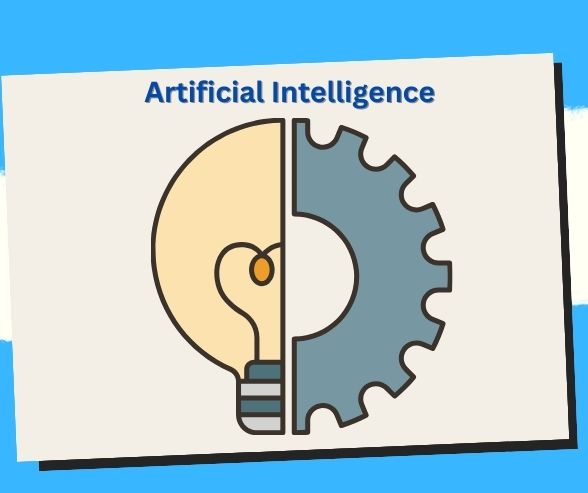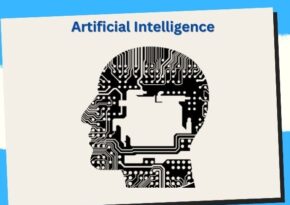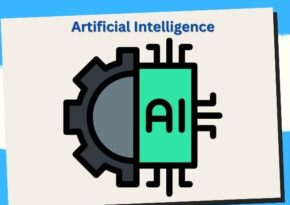
Revolutionizing Mental Health: Designing AI-Powered Support Systems
Explore innovative approaches to designing AI-powered support systems that cater to mental health needs, revolutionizing the way we address psychological well-being.
Empowering Wellness: A Guide to Designing AI-Powered Mental Health Support Systems
In today’s fast-paced world, mental health issues are becoming increasingly prevalent, underscoring the need for accessible and effective support systems. Artificial intelligence (AI) presents a promising avenue for designing innovative mental health solutions that can reach a wider audience and provide personalized support. In this comprehensive guide, we’ll explore how to design AI-powered mental health support systems that prioritize user well-being, accessibility, and ethical considerations.
🧠 Understanding the Importance of AI-Powered Mental Health Support
Before diving into the specifics, let’s acknowledge why AI-powered mental health support systems are vital:
- Accessibility: AI-powered systems can overcome barriers to accessing mental health services by providing round-the-clock support, anonymity, and flexibility in communication channels.
- Personalization: AI algorithms can analyze vast amounts of data to offer personalized recommendations and interventions tailored to individuals’ unique needs, preferences, and circumstances.
- Early Intervention: AI-powered systems can detect early signs of mental health issues, enabling timely intervention and preventive measures to mitigate the severity and impact of mental health conditions.
- Scalability: AI enables scalable solutions that can reach large populations, extending the reach of mental health support services to underserved communities and individuals in remote areas.
🖥️ Steps to Design AI-Powered Mental Health Support Systems
Now, let’s outline a structured approach to designing AI-powered mental health support systems:
1. Define User Needs and Goals
Begin by understanding the needs, preferences, and goals of the target users, including individuals seeking mental health support, caregivers, and healthcare providers. Conduct user research, surveys, and interviews to gather insights into users’ experiences, challenges, and expectations regarding mental health support.
2. Choose Appropriate AI Technologies
Select AI technologies that align with the identified user needs and goals, such as natural language processing (NLP), sentiment analysis, machine learning (ML), and chatbots. Evaluate the capabilities and limitations of AI algorithms to determine their suitability for different aspects of mental health support, such as screening, assessment, intervention, and monitoring.
3. Design User-Centered Interfaces and Experiences
Develop user-centered interfaces and experiences that prioritize usability, accessibility, and engagement. Design intuitive user interfaces (UI) and conversational agents (chatbots) that facilitate seamless interaction and communication with users. Incorporate visual elements, multimedia content, and gamification techniques to enhance user engagement and motivation.
4. Ensure Ethical and Privacy Considerations
Embed ethical principles and privacy safeguards into the design and development of AI-powered mental health support systems. Implement measures to protect user confidentiality, data security, and informed consent throughout the user journey. Adhere to regulatory requirements, industry standards, and best practices for handling sensitive health information and ensuring user trust and confidence.
5. Integrate Human Oversight and Collaboration
Integrate human oversight and collaboration into AI-powered mental health support systems to complement automated interventions with human expertise and empathy. Empower healthcare professionals, counselors, and peer support volunteers to provide personalized guidance, emotional support, and crisis intervention when needed. Foster a collaborative care model that leverages the strengths of both AI and human intelligence.
6. Evaluate Effectiveness and Impact
Conduct rigorous evaluation and validation of AI-powered mental health support systems to assess their effectiveness, usability, and impact on user outcomes. Measure key performance indicators (KPIs) such as user engagement, satisfaction, symptom improvement, and adherence to treatment plans. Iterate on the design and functionality based on user feedback and evaluation findings to continuously improve system performance and user experience.
🔍 Key Considerations and Tips
- Cultural Sensitivity: Consider cultural diversity and sensitivity in the design and delivery of mental health support services, respecting diverse beliefs, values, and practices.
- Data Quality and Bias: Ensure the quality, diversity, and representativeness of training data sets to mitigate biases and ensure equitable access to mental health support for all users.
- User Empowerment: Empower users to take an active role in their mental health journey by providing access to educational resources, self-help tools, and peer support networks.
- Collaboration with Stakeholders: Collaborate with mental health professionals, researchers, advocacy groups, and community organizations to co-create and validate AI-powered mental health support systems that meet the needs of diverse populations.
Benefits of Designing AI-Powered Mental Health Support Systems
- Accessibility: AI-powered systems increase access to mental health support by providing round-the-clock assistance, overcoming barriers such as geographical distance and stigma associated with seeking help.
- Personalization: These systems offer personalized interventions tailored to individual needs and preferences, enhancing engagement and effectiveness of mental health interventions.
- Early Intervention: AI algorithms can detect early signs of mental health issues, enabling timely intervention and prevention of more severe symptoms or crises.
- Scalability: AI-powered systems can scale to serve a large population, addressing the growing demand for mental health services without overwhelming human resources.
- Cost-effectiveness: By automating routine tasks and providing self-guided interventions, AI-powered systems reduce the burden on healthcare resources, leading to cost savings for individuals and healthcare providers.
- Continuous Monitoring: AI algorithms can continuously monitor individuals’ mental health status, providing proactive support and timely interventions when needed.
- Data-Driven Insights: AI-powered systems generate valuable insights from large datasets, informing mental health research, policy-making, and resource allocation.
- User Empowerment: Individuals using AI-powered systems are empowered to take an active role in managing their mental health, fostering autonomy and self-efficacy.
- Cultural Sensitivity: These systems can be designed to be culturally sensitive and inclusive, addressing diverse needs and preferences across different populations.
- Reducing Treatment Gaps: AI-powered systems help bridge the treatment gap in mental health care by reaching underserved populations and providing support where traditional services may be lacking.
Case Studies: Successful AI-Powered Mental Health Support Systems
- Woebot: Woebot is a chatbot-based mental health support system that uses AI techniques such as natural language processing and cognitive-behavioral therapy (CBT) to provide users with personalized interventions and support.
- Wysa: Wysa is an AI-powered mental health app that offers anonymous chat-based support and interventions based on principles of CBT, mindfulness, and positive psychology, catering to diverse mental health needs.
- X2AI’s Tess: Tess is a virtual mental health therapist developed by X2AI, which uses AI-driven conversations to provide personalized support and interventions for users experiencing stress, anxiety, or depression.
- Mindstrong: Mindstrong is a digital mental health platform that uses AI algorithms to analyze smartphone usage patterns and detect subtle changes in behavior associated with mental health conditions, providing timely interventions and support.
- Talkspace: Talkspace is an online therapy platform that utilizes AI algorithms to match users with licensed therapists based on their preferences and needs, offering convenient and accessible mental health care.
- SilverCloud Health: SilverCloud Health offers digital mental health programs based on cognitive-behavioral therapy (CBT) principles, enhanced by AI-driven features such as personalized feedback and support, facilitating self-guided interventions.
- Big White Wall: Big White Wall is an online peer support community and mental health platform that leverages AI algorithms to analyze user interactions and provide personalized recommendations and interventions for users in distress.
- Moodpath: Moodpath is a mobile app that utilizes AI-driven mood tracking and assessment tools to help users monitor their mental health, identify patterns, and receive personalized recommendations for self-care and support.
- Therachat: Therachat is a mental health app that incorporates AI-driven journaling and self-assessment tools to help users track their moods, thoughts, and behaviors, facilitating self-reflection and engagement in therapy.
- Quartet Health: Quartet Health is a healthcare platform that uses AI-driven algorithms to identify individuals with unmet mental health needs within healthcare systems and connect them with appropriate providers and resources.
Key Takeaways for Designing AI-Powered Mental Health Support Systems
- Human-Centered Design: Prioritize the needs, preferences, and experiences of users in designing AI-powered mental health support systems, ensuring that interventions are user-friendly, accessible, and culturally sensitive.
- Ethical Considerations: Address ethical concerns such as privacy, confidentiality, consent, and algorithmic bias in the design and implementation of AI-powered mental health support systems to uphold users’ rights and well-being.
- Evidence-Based Interventions: Incorporate evidence-based interventions such as cognitive-behavioral therapy (CBT), mindfulness, and positive psychology into AI-powered mental health support systems, ensuring effectiveness and safety.
- Interdisciplinary Collaboration: Foster collaboration between psychologists, psychiatrists, data scientists, engineers, and users in designing AI-powered mental health support systems, leveraging diverse expertise and perspectives.
- Continuous Improvement: Iterate and refine AI-powered mental health support systems based on user feedback, data analysis, and advances in technology and mental health research to ensure ongoing relevance and effectiveness.
- Transparency and Explainability: Ensure transparency and explainability of AI algorithms and interventions in mental health support systems, enabling users to understand how decisions are made and fostering trust and accountability.
- Integration with Existing Services: Integrate AI-powered mental health support systems with existing healthcare services, including primary care, specialty mental health care, and community-based support networks, to enhance continuity of care and collaboration.
- User Education and Empowerment: Provide education and support to users on how to use AI-powered mental health support systems effectively, empowering them to take an active role in managing their mental health and well-being.
- Collaboration with Mental Health Professionals: Collaborate with mental health professionals and organizations in the design, evaluation, and implementation of AI-powered mental health support systems, ensuring alignment with best practices and standards of care.
- Long-Term Monitoring and Support: Implement mechanisms for long-term monitoring and support in AI-powered mental health support systems, including periodic assessments, follow-up interventions, and referrals to appropriate care providers as needed.
FAQs: Addressing Common Concerns about AI-Powered Mental Health Support Systems
1. Are AI-powered mental health support systems effective?
- Yes, AI-powered mental health support systems can be effective in providing personalized interventions, early detection of mental health issues, and continuous support for users.
2. How do AI-powered mental health support systems protect user privacy?
- AI-powered mental health support systems prioritize user privacy by implementing robust data security measures, anonymizing data when possible, obtaining user consent, and adhering to relevant privacy regulations and guidelines.
3. Can AI-powered mental health support systems replace traditional therapy?
- AI-powered mental health support systems can complement traditional therapy by providing additional support, resources, and interventions, but they are not intended to replace professional mental health care when needed.
4. How do AI algorithms detect mental health issues?
- AI algorithms can detect mental health issues by analyzing various data sources, including user interactions, behavioral patterns, language use, and physiological signals, to identify indicators of distress or impairment.
5. Are AI-powered mental health support systems accessible to everyone?
- Efforts are made to ensure that AI-powered mental health support systems are accessible to everyone, including individuals with disabilities, by providing alternative communication methods, adapting interfaces, and adhering to accessibility standards.
6. What role do mental health professionals play in AI-powered mental health support systems?
- Mental health professionals provide expertise in designing, evaluating, and implementing AI-powered mental health support systems, ensuring that interventions are evidence-based, safe, and aligned with best practices in mental health care.
7. How do AI-powered mental health support systems address cultural diversity?
- AI-powered mental health support systems can be designed to be culturally sensitive and inclusive by incorporating diverse perspectives, adapting interventions to different cultural contexts, and providing multilingual support.
8. Are there risks associated with relying on AI-powered mental health support systems?
- Risks associated with AI-powered mental health support systems include potential biases in algorithms, data security breaches, and over-reliance on technology at the expense of human connection and support.
9. Can AI algorithms provide accurate diagnoses of mental health conditions?
- While AI algorithms can assist in screening and early detection of mental health issues, they are not substitutes for comprehensive clinical assessment and diagnosis by qualified mental health professionals.
10. How can individuals access AI-powered mental health support systems?
- Individuals can access AI-powered mental health support systems through mobile apps, websites, telehealth platforms, or integrated within existing healthcare services, depending on the availability and accessibility of these resources in their region.
Designing AI-powered mental health support systems represents a significant opportunity to revolutionize mental health care, making it more accessible, personalized, and effective for individuals worldwide. By leveraging the capabilities of AI technologies and adhering to ethical principles and best practices, these systems have the potential to transform lives and promote mental wellness on a global scale.
Conclusion
By following these guidelines and principles, designers, developers, and healthcare professionals can create AI-powered mental health support systems that are user-centered, ethically responsible, and effective in promoting well-being and resilience. Together, let’s harness the transformative potential of AI to empower individuals and communities to thrive in their mental health journey.
Key Phrases
- AI-Powered Mental Health Support Systems
- Mental Wellness
- Psychological Well-being
- Innovation in Wellness
- Accessible Support
- Personalized Care
- Early Intervention
- Holistic Wellness
- Empathetic Support
- Inclusive Design
Best Hashtags
- #MentalHealthSupport
- #AIforWellness
- #MentalWellbeing
- #InnovationInHealthcare
- #AccessibleSupport
- #PersonalizedCare
- #EarlyIntervention
- #HolisticWellness
- #EmpatheticAI
- #InclusiveDesign
Save/Share this story with QR CODE
Disclaimer
This article is for informational purposes only and does not constitute endorsement of any specific technologies or methodologies and financial advice or endorsement of any specific products or services.
📩 Need to get in touch?
Feel free to Email Us for comments, suggestions, reviews, or anything else.
We appreciate your reading. 😊Simple Ways To Say Thanks & Support Us:
1.) ❤️GIVE A TIP. Send a small donation thru Paypal😊❤️
Your DONATION will be used to fund and maintain NEXTGENDAY.com
Subscribers in the Philippines can make donations to mobile number 0917 906 3081, thru GCash.
3.) 🛒 BUY or SIGN UP to our AFFILIATE PARTNERS.
4.) 👍 Give this news article a THUMBS UP, and Leave a Comment (at Least Five Words).
AFFILIATE PARTNERS

World Class Nutritional Supplements - Buy Highest Quality Products, Purest Most Healthy Ingredients, Direct to your Door! Up to 90% OFF.
Join LiveGood Today - A company created to satisfy the world's most demanding leaders and entrepreneurs, with the best compensation plan today.



 Business Technology, Finance Technology & Information Technology
Business Technology, Finance Technology & Information Technology





